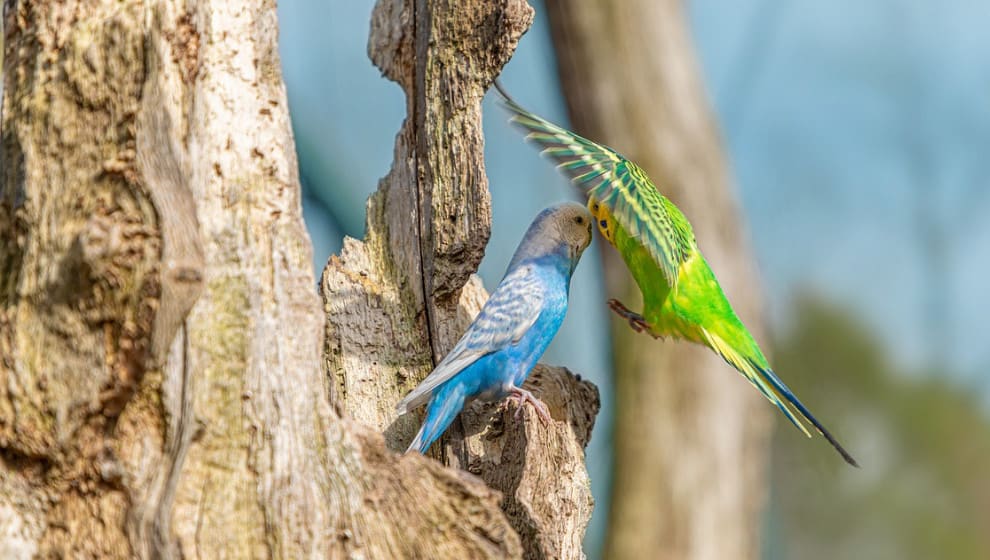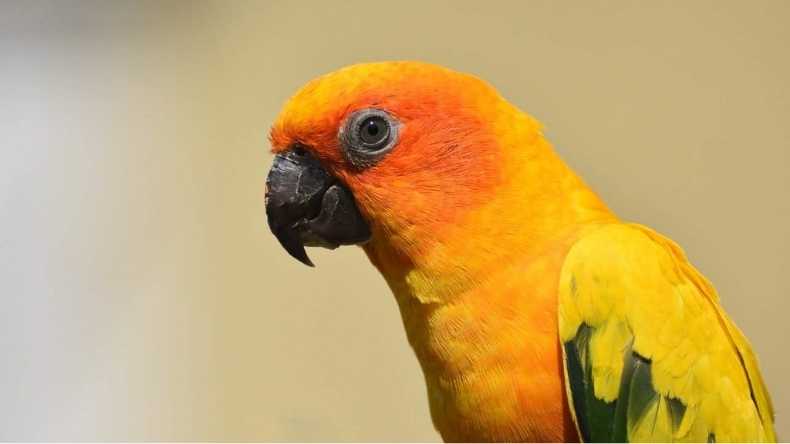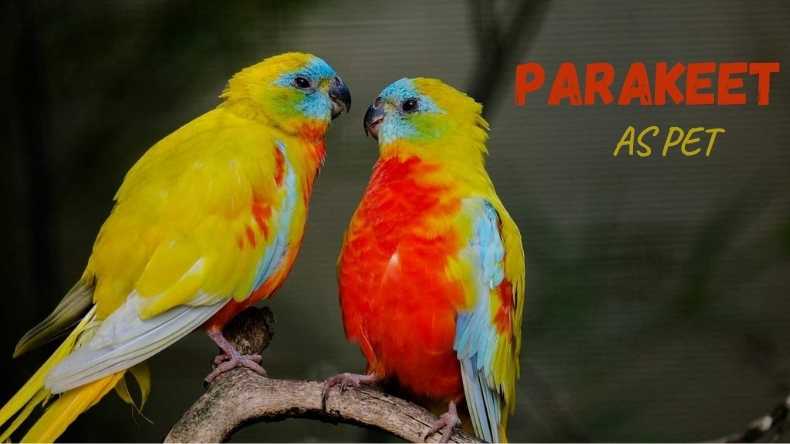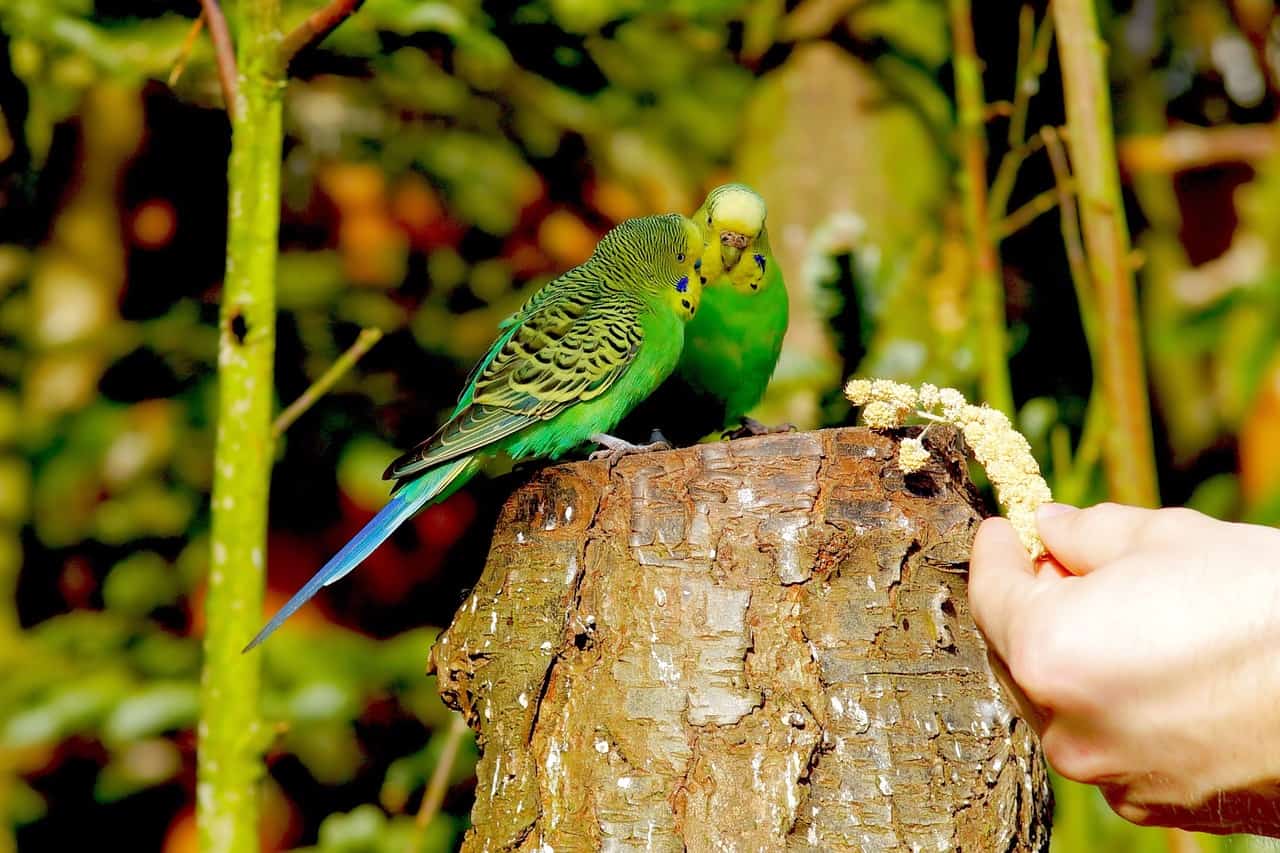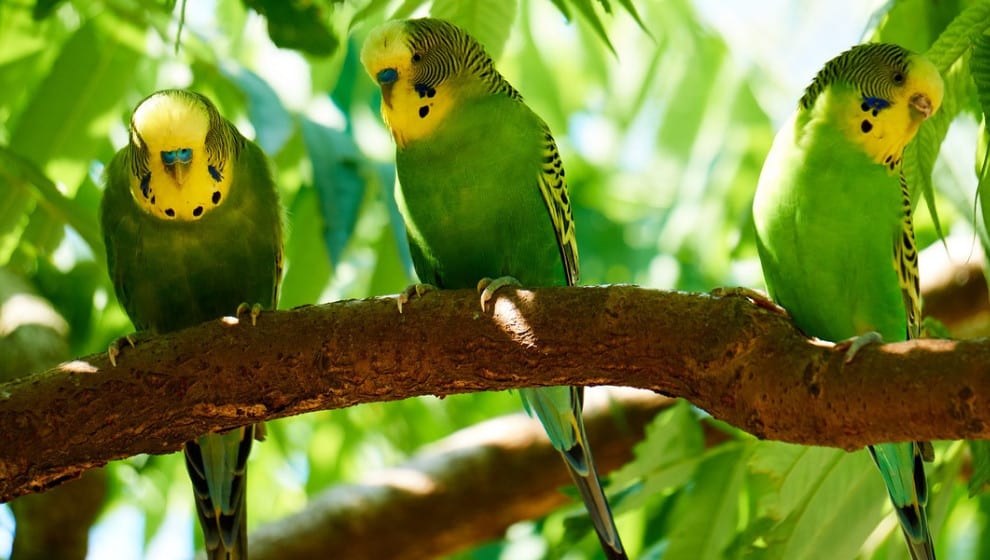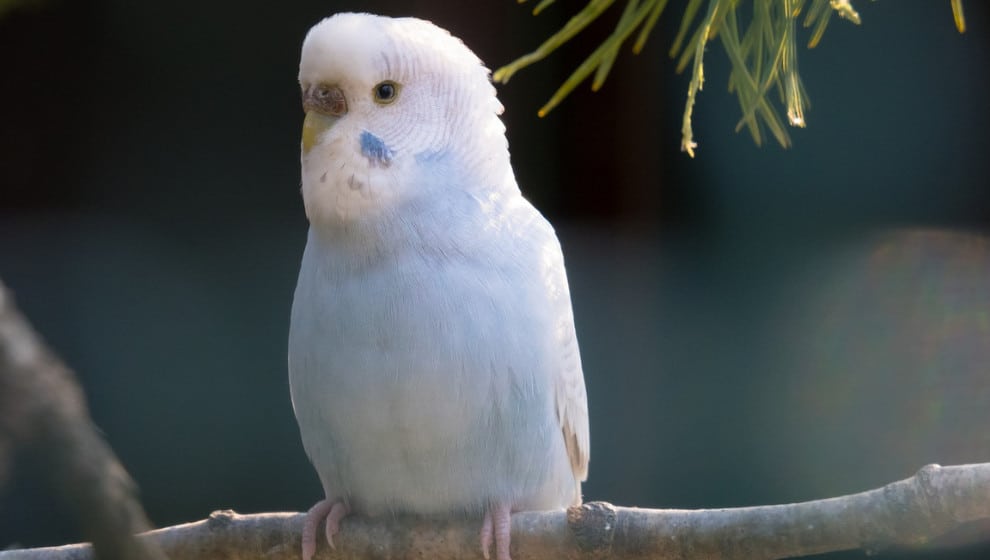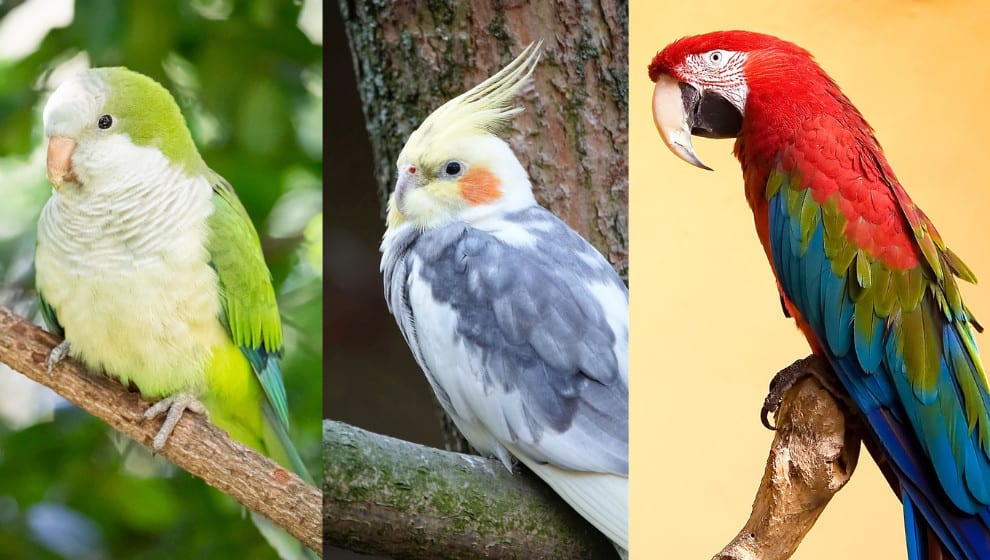Your parakeet (commonly known as “budgie”) needs a healthy, balanced diet to survive. Your captive pet may predominantly eat pallets that contain nutrients they need, but adding fresh fruits and vegetables can boost their vitamin and mineral levels.
Budgies are often thought of as a “beginner bird.” However, this social, loveable little bird deserves just as much your care, attention, and love as larger parrots. Parakeets are playful, and they love to eat food. They can compete with any parrot in terms of talking ability.
You can treat your budgie with their favorite foods to teach them what you want. As we have already discussed some details regarding the general diet of parakeets, we are now side by side giving you details about their dietary habits concerning different fruits and vegetables they love to eat.
For a better and healthy life span for your parakeet, you have to maintain a well-balanced diet. It would help if you looked into the nutrients and elements list of the things you are feeding your budgie to check that you are not overdoing anything.
Parakeets love to eat different fruits and vegetables. Blueberries are one of the healthiest fruits available you can serve to your budgie as they are packed with beneficial nutrients, including Vitamins A, B6, and C, potassium, fiber, iron, magnesium, and water.
In this article, we will discuss everything you need to know about feeding blueberries to your parakeet.
Table of Contents
Are Blueberries Safe For Your Parakeet?
Blueberries are safe for your parakeet to eat. These are some of the healthiest options among the fruits your parakeet eats. Blueberries are enriched with all the essential nutrients and minerals that are very beneficial for your budgie’s growth and sound health.
Can Parakeets Eat Blueberries?
Yes, parakeets can eat blueberries. They are healthy and nutritious, making them an excellent part of your parakeet’s diet. As mentioned, blueberries are one of the best fruit you can add to your parakeet’s diet.
But, it will be good only if you give in moderation. To prevent overfeeding, your parakeet’s diet should only consist of 15% blueberries. They are also best to serve to your budgie along with other fruits and veggies, including:
Celery
Carrots
Blackberries
Cherries
Papaya
Feeding blueberries will make a little mess. Be prepared to clean your budgie and cage once they are done eating to prevent them from getting sticky.
Do Parakeets Like Blueberries?
Parakeets enjoy the texture and taste of blueberries. As blueberries are juicy and packed with an amazing tropical flavor, your budgie seems to love them. Besides providing dietary health benefits, blueberries are also a source of mental stimulation. To prevent them from getting bored and stressed, you need to serve them blueberries.
Although parakeets love to enjoy all manner of fruits, you should try to see if your parakeet enjoys the taste at its fullest or not because taste preference is dependent on every individual bird.
What Is The Nutritional Value Of Blueberries?
According to the US Department of Agriculture, a cup (150 g) of blueberries contains:
| Calories: 85.5 Kcal |
| Carbohydrates: 21.7g |
| Fats: 0.495g |
| Proteins: 1.11g |
| Sugars: 14.9g |
| Fiber: 3.6g |
| Calcium: 9mg |
| Magnesium: 9mg |
| Iron: 0.42mg |
| Phosphorus: 18mg |
| Potassium: 116mg |
| Zinc: 0.24mg |
| Sodium: 1.5mg |
| Vitamin A: 4.5mcg |
| Vitamin C: 14.6mg |
| Vitamin B 6: 0.078mg |
Are Parakeets Allowed Blueberries?
As we have mentioned, blueberries are the healthiest addition to your parakeet’s daily diet because they contain the following nutrients.
Vitamin A
Vitamin A is the most deficient nutrient in the bird’s diet. It is a crucial element for a healthy immune system and plays a significant role in a bird’s health. Vitamin A is helpful for:
- To ease symptoms associated with kidney diseases.
- To prevent blindness.
- To improve psittacosis
When they are not taking Vitamin A in their diet, your parakeet becomes vulnerable to a range of health conditions. But fortunately, signs of vitamin A deficiency are easy to spot poor vision and white oral plaques in the mouth.
Also, parakeets with an inadequate amount of Vitamin A develop brittle and weak bones. They will also suffer respiratory problems. In the worse cases, their immunity will weaken that parakeets can’t fight off infections and diseases, resulting in their early deaths.
Vitamin C
An enormous amount of vitamin C is present in blueberries. Parakeets need to be healthy as vitamin C boosts the immune system and helps the body absorb iron (another important mineral).
Vitamin C also:
- Prevents harmful cell formation.
- Helps in the development of muscles and bones.
- Stabilizes blood sugar levels and cholesterol.
Vitamin C is also beneficial whenever parakeets get injured because Vitamin C speeds up the healing. It can also clear up fungal infections and rashes.
Vitamin B6
Small amounts of vitamin B6 and other B complexes are present in blueberries that help parakeets turn food into energy. Vitamin B6 also promotes healthy brain development and helps regulate mood. It also lowers the chances of stroke and heart diseases. As water-soluble, parakeets must consume it regularly through their diet to get enough Vitamin B6.
Water
Blueberries are the natural source of water as they are composed of 84% of water. Your parakeet can get most of its water from blueberries, although too much of its consumption can cause diarrhea. So to keep your parakeet hydrated, blueberries are an excellent natural source.
Water is essential to maintain proper kidney, liver, and heart functions. Water flushes out toxins and excess minerals and vitamins from your parakeet’s body which is very harmful in high amounts and can cause long-term health issues.
Fiber
Blueberries also contain some fiber that is helpful in the softening of stools and keeps things regular. It promotes good gut health also by regulating the digestive system’s functions. Also, fiber gives fullness, so parakeets will not feel hungry too soon after eating blueberries.
Potassium
A good amount of potassium needed for the growth and development of your parakeet’s muscles and bones is present in blueberries. It regulates a range of bodily functions with sodium, such as muscle contraction, nerve signals, and fluid balance.
Female parakeets need more potassium during their breeding season. Similarly, parakeets suffering from breathing difficulties and muscle cramps can do better with more potassium in their diets. If you notice any of these symptoms in your parakeet, give them a hand full of blueberries.
Magnesium
Along with potassium, magnesium is also required by the bones and muscles. Its deficiency is partly responsible for calcium deficiencies and is needed for;
- Regulating body temperature
- Growth of strong bones
- Preventing seizures
If your parakeet is not taking enough magnesium, they will become prone to have weak, soft, and brittle bones.
Iron
Like humans, birds also need iron to produce hemoglobin, which is responsible for carrying oxygen around the body. If the iron level is not maintained, parakeets will have anemia.
If your parakeet lacks iron, it will appear lazy, weak, and tired. But an excessive amount of iron will lead to iron storage diseases. So its level should be maintained very carefully.
Antioxidants
Blueberries are a rich source of antioxidants. They work against the free radicals and prevents them from causing damage to the body. Anti-inflammatory properties are also present in the blueberries that protect the body against severe infections and afflictions.
If your parakeet is unwell due to the extraordinary antioxidant amounts of blueberries, it is the best food you can add to your budgie’s diet.
Although the nutritional value of blueberries is considerable, you should not give them to your parakeet too often because an excessive amount of antioxidants removes a large number of free radicals, which is not a good thing. The immune system needs a small number of free radicals to work.
How To Serve Blueberries To A Parakeet?
Blueberries are entirely safe to eat whole, so there is not much to do with blueberries before serving. The only thing you should do is wash them thoroughly.
You can use a skewer to serve to the small parakeet, but you can place berries in the bowl if your budgie loves to pick the fruit whole and want to eat them that way.
Frequently Asked Questions
Can Parakeets Eat Frozen Blueberries?
Your parakeet can eat frozen blueberries but in small quantities. Although fresh blueberries are better but freezing them can prevent them from going to waste, and freezing the fruit on the same day they are picked, will keep the nutrients locked.
However, you should thaw berries before serving because your parakeet may develop stomach upset after eating cold berries. Also, choose an organic variety of blueberries to avoid the risk of pesticides.
Can Parakeets Eat Dried Blueberries?
It is better to serve fresh blueberries to your budgie because of their water content. But it is said that dried blueberries are entirely safe to give to parakeets as they contain the same essential nutrients that will keep your budgie healthy and happy.
But one thing to concern is that blueberries shrink during drying, and then parakeets will consume more blueberries. Overconsumption of blueberries will raise your budgie’s calories and sugar level that might cause obesity and weight gain.
However, some parakeets might love the chewy texture of dried blueberries. So, you should reduce the amount of serving as compared to the fresh blueberries.
Can Parakeets Drink Blueberry Juice?
If you aim to provide all the goodness of fresh blueberries to your parakeet, blueberry juice is the best option then. However, that juice should not be bought from the store as they have added high amounts of sugar and preservatives to keep them for a longer time.
Organic blueberry juice is a better option. Also, you can make juice on your own. You can blend blueberries and, to maintain consistency, can add water. Serve juice in the shallow bowl to your budgie or mix juice in your parakeet’s pallet to provide extra vitamins and minerals.
Do You Need To Peel Blueberries For Your Parakeet?
No, you do not need to peel blueberries before serving to your parakeet. If blueberries are too big for your budgie, you can cut them into half or quarter and serve that way.
What About Pesticides In The Blueberries?
Unless you are buying organic ones, you will get pesticides in the berries. Generally, it is not good to give pesticide-treated fruits and vegetables to your parakeets. So, try to find organic blueberries to treat your feather friend.
Will A Parakeet’s Poop Be Purple After Aating Blueberries?
It would help if you did not have to worry about seeing purple droppings by your parakeet because it is normal after eating blueberries.
Verdict
When given in moderation, blueberries are an excellent addition to your parakeet’s diet. It helps your budgie to be healthy. As birds love a wide range of fruits, you should provide them fruits alongside the food to maintain their vitamin and mineral levels.

